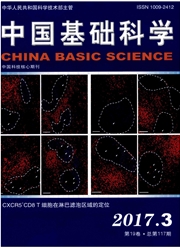

 中文摘要:
中文摘要:
人类胚胎干细胞及诱导多能干细胞研究的一个目标就是将它们成功应用于临床细胞替代疗法,为人类健康做贡献。诱导人类胚胎干细胞及诱导多能干细胞向不同谱系的细胞定向分化是将其应用于临床的前提,系统研究具有不同发育潜能的人多能干细胞间多种差异的分子机制,不仅能够深入理解发育潜能建立的分子基础,而且对筛选和建立符合临床应用标准的人多能干细胞具有重要意义。由同济大学康九红教授领衔的国家重大科学研究计划项目,通过研究不同来源的人类胚胎干细胞及诱导多能干细胞系在多能性、分化潜能、临床有效性和安全性差异的内在本质的区别,对其中所涉及的4个关键科学问题开展了深入研究,取得了若干重要进展。本文就该项目研究的概况、研究进展、实施效果进行回顾与论述,并对后续研究提出展望。
 英文摘要:
英文摘要:
One of the highest goals of human ES and iPS cell research is to successfully apply them to clinical cell re- placement therapy for human health. Differentiation of human ES or iPS cells into different lineages of cells is a prerequisite for clinical application. The molecular mechanism of multiple differences among human pluri- potent stem cells with different developmental potential is very important. It not only can further understand the molecular basis of the development potential, but also has important significance for the screening and estab- lishment of human pluripotent stem cells which are in line with clinical application. Through the'National major scientific research project' Program led by Tongji University, four key scientific problems were re- searched, they were included in the scientific problems of the stability maintenance, differentiation potential, and safety of the pluripotent stem cells. Several impor- tant progress were achieved. This paper reviews and discusses the general situation, research progress, and implementation effect of the project, then the prospect of further research are proposed.
 同期刊论文项目
同期刊论文项目
 同项目期刊论文
同项目期刊论文
 期刊信息
期刊信息
